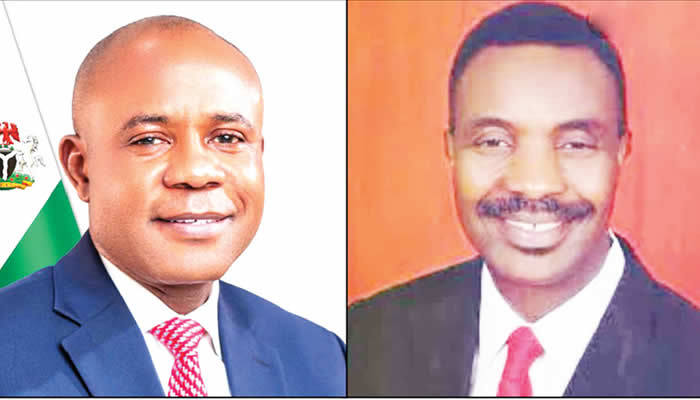The administration of Governor Peter Mbah in Enugu State has come under intense scrutiny for its unfulfilled promise of providing clean, accessible water to residents within 180 days of taking office. Two years into his tenure, this critical pledge remains unmet, leaving many citizens grappling with the persistent challenge of accessing potable water. Dr. Ben Nwoye, a former Federal Commissioner with the Federal Competition and Consumer Protection Commission, has voiced strong criticism against the governor’s failure, highlighting the stark contrast between the promised water supply and the prevailing reality faced by residents. The governor had staked his position on delivering this essential service, famously declaring that he would resign if he failed to bring water to every home within the stipulated timeframe. Yet, the reality on the ground paints a vastly different picture, with limited progress and a lack of official explanation for the delay.
The scarcity of piped water has forced residents to rely heavily on water vendors, placing a significant financial burden on households. The cost of water has escalated, with 500 gallons of tanker water averaging N16,000, 750 gallons at N22,000, and 1,000 gallons reaching N30,000. This price surge has been attributed to increased taxes imposed on water vendors by the state government, further exacerbating the financial strain on citizens already struggling to access this basic necessity. Nwoye, reflecting on the initial optimism surrounding the administration’s early efforts, expressed disappointment at the apparent stagnation of the water project. While acknowledging that pipes were laid, he noted the lack of tangible progress since then. This sense of unfulfilled potential has left residents questioning the government’s commitment to resolving the long-standing water crisis.
Nwoye’s personal experience underscores the widespread nature of the water shortage. Residing in Independence Layout, an area considered the heart of Enugu, he revealed that his home remains without piped water two years into the Mbah administration. This illustrates the pervasiveness of the issue, affecting even those in supposedly privileged locations. The financial implications of this failure are substantial, forcing numerous residents to allocate significant portions of their income to purchasing water. Nwoye emphasized the willingness of residents to pay for a reliable, government-provided water supply, suggesting that a functional water system could contribute significantly to the state’s internal revenue. Beyond the financial burden, the lack of clean water poses serious health risks, contributing to a higher incidence of waterborne diseases like malaria and typhoid. The reliance on untreated well water exposes residents to health hazards, underscoring the urgent need for a sustainable water solution.
Beyond the water crisis, Nwoye also condemned the governor’s approach to urban development, particularly the demolition of homes and businesses without adequate compensation. He questioned the rationale behind demolishing properties before compensating owners, highlighting the distress and hardship this practice inflicts on affected residents. Citing his experience in Rivers State, Nwoye contrasted Governor Mbah’s approach with the more structured and considerate processes employed during similar infrastructure development projects under Governors Rotimi Amaechi, Nyesom Wike, and Siminalayi Fubara. In Rivers State, thorough assessments were conducted by quantity surveyors and lawyers to determine the value of properties before any demolition took place. Compensation was then paid to property owners, including renters and business owners, prior to the commencement of demolition activities.
This methodical approach ensures that individuals are not unduly burdened by development projects, recognizing their right to fair compensation for their losses. Nwoye highlighted the importance of prioritizing the well-being of the people in development projects. He emphasized that development should not come at the expense of the very people it is intended to benefit, posing a poignant question: “You don’t destroy the people to build a project; who then will use it?” This underscores the need for a more humane and compassionate approach to urban development, one that prioritizes the needs of the community and ensures that development efforts do not exacerbate existing inequalities.
Nwoye’s critique serves as a crucial call for accountability and transparency within Governor Mbah’s administration. The unfulfilled promise of water provision and the controversial demolition practices raise concerns about governance and the equitable distribution of resources. The lack of access to clean water and the displacement of residents without adequate compensation highlight the need for a more inclusive and equitable approach to development. The governor’s actions, or lack thereof, in these critical areas warrant further scrutiny and demand a more responsive and responsible approach to governance that prioritizes the well-being of all citizens. The comparison with Rivers State underscores the possibility of implementing more equitable and humane development strategies. By adopting best practices and prioritizing the needs of the community, the government can ensure that development projects enhance, rather than detract from, the lives of the people they are intended to serve.


